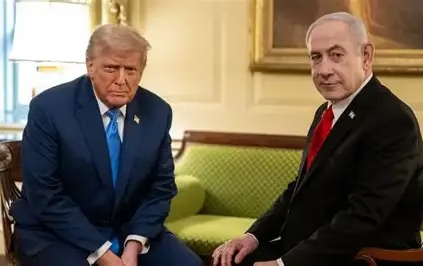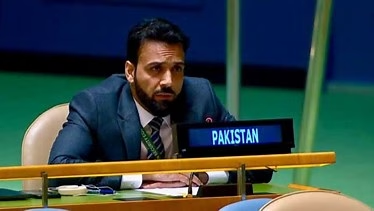
WASHINGTON: Only a few months ago, former US President Donald Trump warmly welcomed Qatar’s leader, admiring his lavish palace and signing a wide-ranging defense deal with the Gulf nation — home to America’s largest military base in the Middle East.
That goodwill has now been shaken. Israel’s unexpected airstrike in Doha on Tuesday, targeting Hamas leaders, has ignited fresh tensions. The attack, ordered by Israeli Prime Minister Benjamin Netanyahu, struck Hamas political offices but failed to kill its top commanders. Instead, six people — including a Qatari security officer — lost their lives.
The move has angered Qatar, frustrated Trump, and drawn sharp criticism from Western allies. “I’m very unhappy about every aspect of this operation,” Trump told reporters.
Strains in the Trump-Netanyahu Partnership
Despite Trump’s irritation, experts believe this bombing will not fundamentally shift Washington’s pro-Israel stance. Analysts note that the incident highlights the transactional nature of the Trump–Netanyahu relationship, where political interests often outweigh diplomatic harmony.
According to US officials, Israel did not provide Washington with advance notice of the strike — echoing a similar episode in September 2024, when Israel targeted Hezbollah with hidden explosives without informing then-President Joe Biden.
Trump has occasionally voiced disapproval of Netanyahu’s methods, but his administration has consistently backed Israel’s campaign against Hamas and supported Israel’s hard line on Iran’s nuclear program.
On Truth Social, Trump later wrote that while the bombings did not advance US or Israeli goals, he still viewed eliminating Hamas as “a worthy objective.”
No Major Break Expected
While tensions are rising, many analysts say a full rupture in the Trump-Netanyahu alliance is unlikely. Netanyahu risks pushing Trump’s patience if Israel continues to act unilaterally, but so far, the US president has shown little sign of pulling back support.
The bombing in Qatar, however, could slow Trump’s ambitions of expanding the Abraham Accords — a 2020 peace deal where Arab nations normalized ties with Israel. Qatar’s anger, coupled with criticism from European and Arab states over Israel’s Gaza campaign, has complicated those efforts.
Dennis Ross, a veteran US negotiator, suggested Trump may eventually pressure Netanyahu if Arab partners propose credible alternatives for post-war governance in Gaza.
A Relationship of Highs and Lows
The Trump–Netanyahu partnership has long been marked by highs and lows. Earlier this year, Trump visited Saudi Arabia, Qatar, and the UAE on his first major overseas tour but skipped Israel — a move seen as a diplomatic slight. Still, ties were quickly restored after Trump supported Israel’s military campaign against Iran in June, even deploying US bombers to strike Iran’s nuclear facilities.
That cooperation boosted goodwill in Jerusalem, but also drew backlash when Israel ignored US ceasefire efforts and launched new strikes in Syria and later in Qatar.
“Washington can push and persuade,” said Jonathan Panikoff, a former US intelligence officer. “But at the end of the day, Netanyahu will always prioritize what he believes serves Israel’s security, even if it undercuts American interests.”










